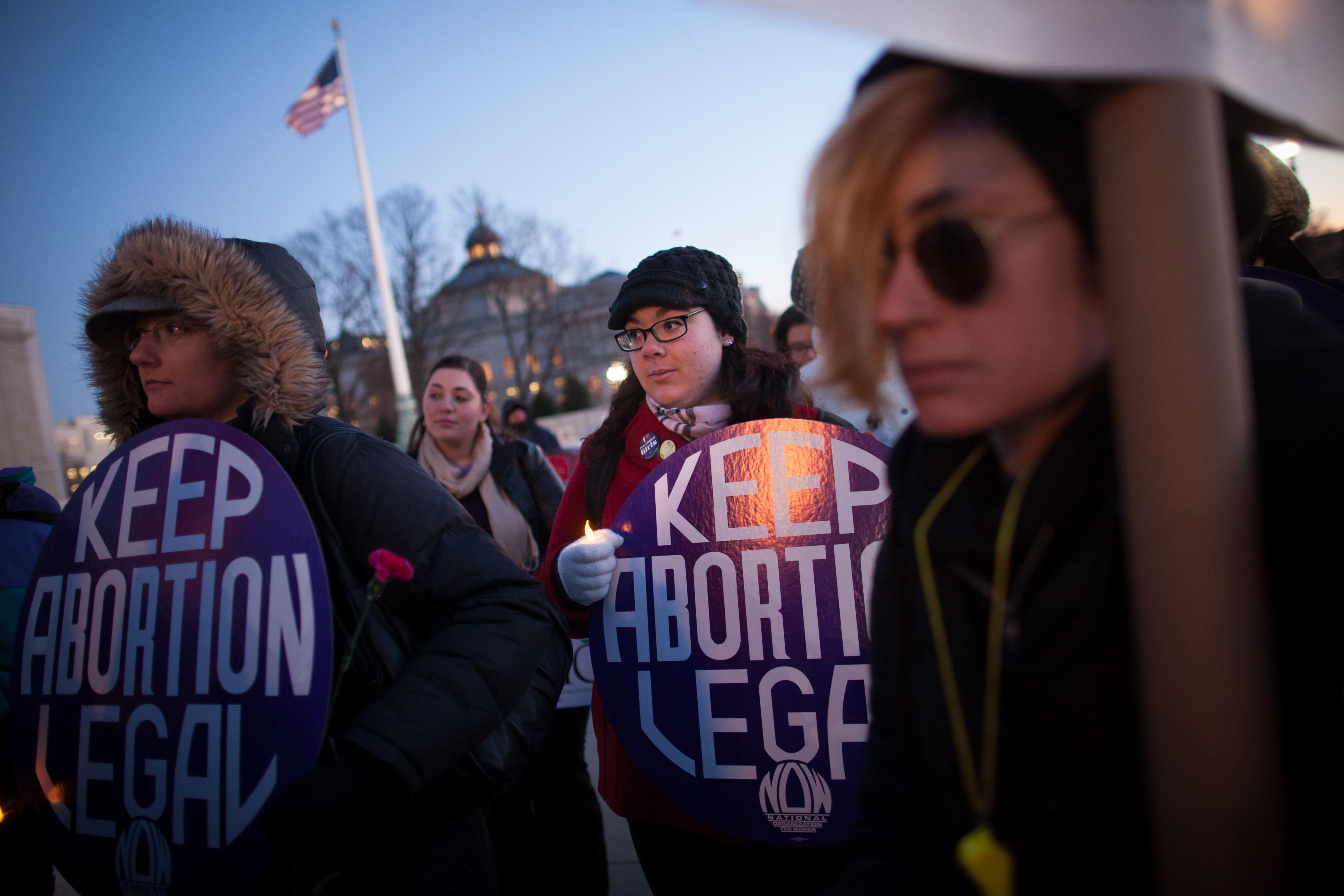Kevin Drum of Mother Jones has a fun and exciting hypothetical for pro-choicers, one that, clearly, no one has thought of before:
Basically, the deal is (a) abortions up to, say, 22 weeks or so, would be legal and easily available, (b) late-term abortions would be completely illegal unless the life of the mother were clearly and directly threatened, and (c) this put an end to the whole issue. Everyone agrees to accept this as the status quo going forward.
Obviously this is pie in the sky. But I’m still curious. If it were on the table, how many of my [pro-choice] readers would agree to it?
Drum brings it up because, in an attempt to confuse them with pre-viability abortions, anti-choicers are raising a fuss over post-viability abortions. That’s irritating, and we’re not fooled. However, I will still answer his hypothetical. If you toss “health of the mother” into his pile of acceptable reasons for post-viability abortions (which are more realistically assumed to be around 24 weeks instead of 22), you’ve just described the “compromise” position established in Roe v. Wade that has been the law of the land for 40 years now. Presumably, pro-choicers are perfectly happy with Roe, which would be why we argued it in court and have defended it for decades.
Now onto why the hypothetical is destructive, as well as silly. Asking pro-choicers if we would accept what amounts to Roe plus funding and better availability than we have now—as if that wasn’t already our loud and proud and frequently stated preference—serves no other purpose than to distort the debate. Specifically, it implies that late term abortions are more common than they are. Here are the facts: Under Roe, forty-one states have bans on post-viability abortions, with exceptions for health, life and in some case, fetal abnormalities. There are only four doctors in the entire country who offer abortions after 25 weeks, and they are confident enough in their patients’ reasons for them that they opened their doors to documentary filmmakers to see how they operate. In many of these cases, it’s unfair to describe the abortion as “post-viability,” because the pregnancy will not successfully produce a live baby. Abortions after 24 or 25 weeks are so rare they don’t even show up in the official statistics compiled either by the Guttmacher Institute or the CDC. At best, tweaking the laws regulating these very late abortions would stop a handful of abortions out of more than one million abortions a year. And they would do so at the cost of hurting and possibly killing women whose doctors couldn’t say with enough certainty that their pregnancies were deadly ones.
The real issue here is one Drum breezes by after a bit of lip service: Anti-choicers focus on these exceedingly rare abortions to demonize the everyday providers, such as Planned Parenthood, offering early terminations and contraception. After all, as Ed Kilgore of the Washington Monthly notes, even if you’re hoodwinked into thinking women generally have post-viability abortions out of choice, rather than medical necessity, that would be an argument for more access to contraception and early term abortion, not less:
But would any anti-choice activists go along with it? No. Because they don’t really care about late-term abortions other than as a lever to move public opinion away from legalized abortion generally. I mean, if late-term abortions were really what upset you, wouldn’t you perhaps be even more adamant than the Planned Parenthood folk in trying to make sure steps short of late-term abortion were not only tolerated but encouraged?
Luckily for us, that’s the situation we’ve got now: Women still have access to contraception and early term abortions, which means the number of women who are trying to get abortions late in their pregnancies is pretty low. By way of counterexample, though, anti-choice attacks on abortion rights mean we’re seeing a return of women going on the black market for late-term abortions in anti-choice states like Idaho and Pennsylvania.
